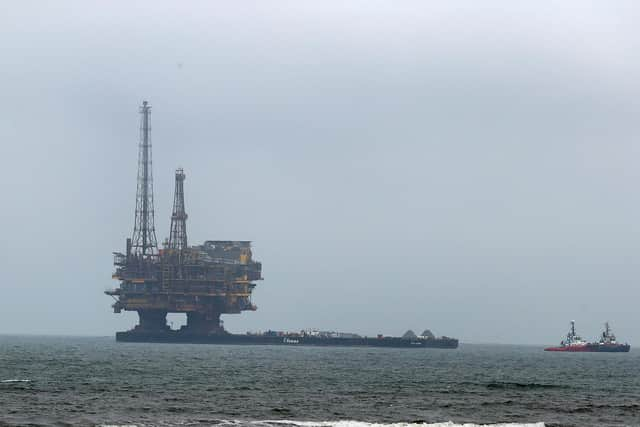Oil and gas: UK and US among rich nations that must end drilling by 2034, report finds
Meanwhile, the world's poorest nations should be given until 2050 to end production but will also need significant financial support to transform their economies to ensure citizens are not unfairly penalised, it recommends.
The findings come from a new study from the University of Manchester which proposes different phase-out dates for oil and gas producing countries, in line with the Paris Agreement’s goals to limit global warming to 1.5C above pre-industrial levels and ensure a fair transition to a low-carbon world.
Advertisement
Hide AdAdvertisement
Hide AdIt warns that there is no room for any nation to increase production, with all required to make significant cuts this decade.


The richest, which produce over a third of the world’s oil and gas, must cut output by 74 per cent by 2030.
The poorest, which supply just one ninth of global demand, must cut back by 14 per cent over the same period.
The research, commissioned by the International Institute for Sustainable Development, notes that some developing nations are so reliant on revenues from fossil fuels that rapidly removing this could threaten their political stability.
Countries like South Sudan, Congo-Brazzaville and Gabon, despite having low production levels, have little other income streams.
Conversely, the report states: “Wealthy nations that are major producers typically remain wealthy even once the oil and gas revenue is removed.”
Kevin Anderson, professor of energy and climate change at the University of Manchester and a leading researcher at the Tyndall Centre for Climate Change Research, said: “Responding to the ongoing climate emergency requires a rapid shift away from a fossil fuel economy, but this must be done fairly.
“There are huge differences in the ability of countries to end oil and gas production while maintaining vibrant economies and delivering a just transition for their citizens.
Advertisement
Hide AdAdvertisement
Hide Ad“We have developed a schedule for phasing out oil and gas production that – with sufficient support for developing countries – meets our very challenging climate commitments and does so in a fair way.”
The research was completed prior to Russia’s invasion of Ukraine, but the researchers say the current instability in the international energy market highlights the need to end reliance on fossil fuels.
“Our first thoughts are with the Ukrainian people and indeed with all of those caught up in the war,” he said.
“But the rocketing oil and gas prices only serve to strengthen the case we make in our report.
“Had we spent the last 20 years establishing an efficient and sensible use of energy alongside a massive roll-out of renewables we would not now be scrabbling around for alternative oil and gas supplies and facing the impacts of volatile prices.
“Now is exactly the time we should be planning for a renewable 21st century rather than reliving the oil-based 20th.”
A flagship report from the Intergovernmental Panel on Climate Change warned last month that failing to limit global warming to 1.5C would have devastating global impacts.
Projections suggest the world will exceed 1.5C of warming as early as 2030 to 2035 if current levels of greenhouse gas emissions continue.
A message from the Editor:
Thank you for reading this article. We’re more reliant on your support than ever as the shift in consumer habits brought about by coronavirus impacts our advertisers.
If you haven’t already, please consider supporting our trusted, fact-checked journalism by taking out a digital subscription.
Comments
Want to join the conversation? Please or to comment on this article.
